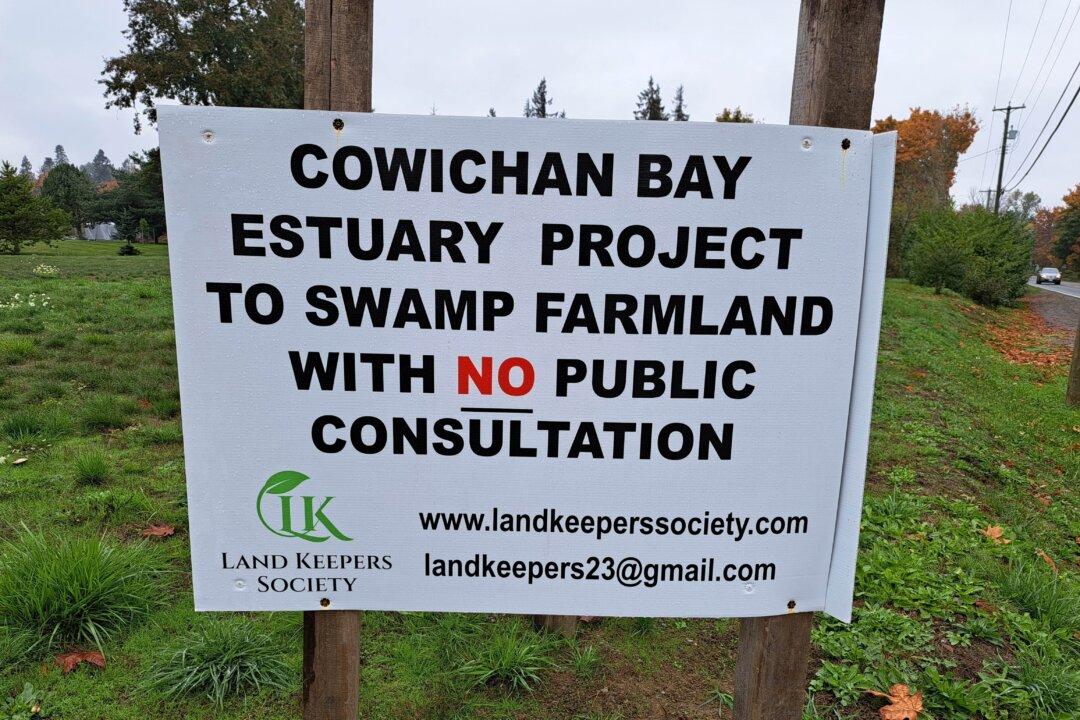A decision to flood a patch of prime farmland on southern Vancouver Island and expand an estuary has rallied local residents to form an organization and hire a law firm to try and stop the project.
The area in question is the Cowichan Estuary, a 400-hectare ecosystem nestled in scenic Cowichan Bay, about 50 kilometres north of Victoria, B.C. There, freshwater from the Cowichan and Koksilah rivers and nutrients from the land mix with seawater in the Salish Sea to create a rich habitat for aquatic life.





